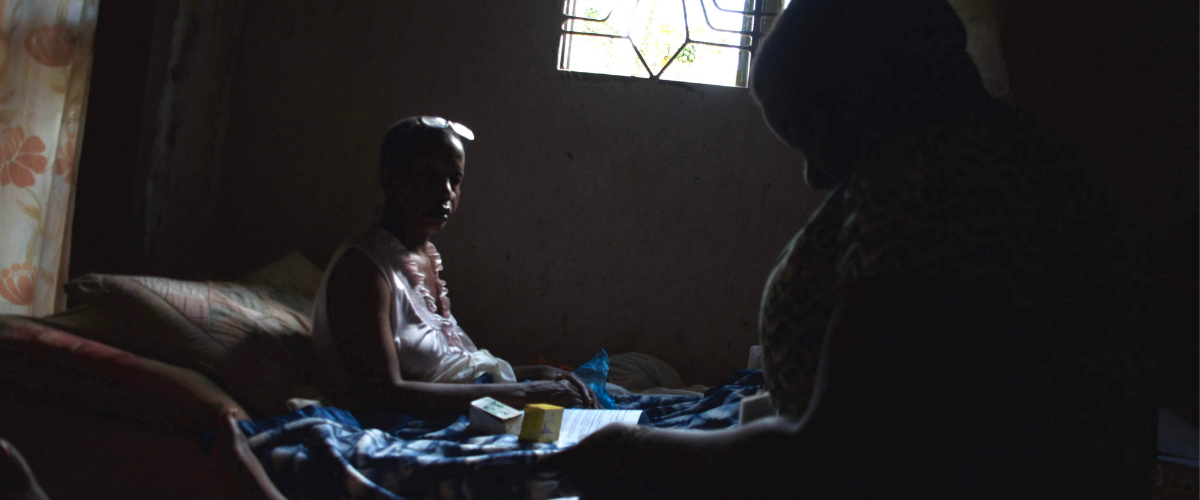The United Nations, specifically the Commission on Narcotic Drugs (CND), is meeting this week to address the World Drug Problem, including a special focus on access and availability to essential medicines for pain relief and palliative care. Given the profound impact of COVID-19 on supply and distribution of much-needed treatments, these meetings could have resounding implications.
Every year, one in 133 people globally need palliative care and nearly 6 billion people lack access to essential medicines to relieve suffering. Prior to Covid-19, the situation was dire, but the pandemic has made it worse.
COVID-19 patients are not the only ones significantly affected by the global pandemic, which is exacerbating inequities in access and availability to medications. Cancer patients and others with any kind of illness are experiencing disruptions to essential medicines needed to treat their disease and obtain symptom relief.
"Things are better since the pandemic started but supply chain disruptions are still going on. People still aren’t getting medicines for all diseases especially for palliative care.”
— Jean Claude Tayari
As sparse medical resources are being allocated to care for those with the virus, diseases such as cancer, TB, and HIV/ AIDS require continued distributions of essential medicines for pain and palliative care that are increasingly inaccessible, especially in low- and middle-income countries and in some cases, in higher-income countries.
“Things are better since the pandemic started but supply chain disruptions are still going on. People still aren’t getting medicines for all diseases and for palliative care,” says Jean Claude Tayari, an expert in Supply Chain and Procurement Management in Africa.
This plight is not just affecting governments and healthcare systems but is having a detrimental impact among patients around the world. Currently in Colombia, patients living with metastatic cancer in rural parts of the country need to travel four hours to fill a prescription for pain medicine that was locally available prior to March.
“It is like cancer and palliative care patients have become invisible since Covid-19. We’ve been working round-the-clock with all levels of government, healthcare systems and providers to ensure necessary medications can get to the patients who are suffering,” said Dr. Marta Leon, an anesthesiologist and palliative care physician in Bogota, Colombia.
In addressing this urgent topic, international experts, including clinicians and supply chain experts, are weighing-in at the CND this week to develop solutions to improve access and availability for internationally controlled medicines for pain relief and palliative care. Adding to this mounting global focus is the recently-published World Drug Report, which for the first time has designated a special section addressing barriers to access and availability of controlled medicines for pain management and palliative care.
The real litmus test of the CND deliberations is how such international efforts will translate into patient relief both globally and in the United States.
“Patients in low and middle-income countries (LMICs) bear the biggest burden of inequities in lack or no access to essential medicines and palliative care. Yet, patients in higher-income countries are affected as well. Covid-19 has placed phenomenal pressure and profound barriers on healthcare systems that were already severely stretched,” said Jim Cleary, MD, Palliative Care Specialist and Director of the Walther Center in Global Palliative Care and Supportive Oncology at Indiana University.
In Sudan, Dr. Nahla Jafer reports a similar plight when all hospitals, clinics and roads were closed and there was no access to medications for any illness, even cancer.
“Patients with any disease could not get medications or treatment. The suffering was staggering.” Gafer said, “We’ve had to come together and find creative ways to help all patients who need essential medicines and palliative care – before, during and after the pandemic.”
Balance is Paramount to Address Inequities
In addressing the importance of making essential controlled medicines accessible to patients in need of pain relief and palliative care, there is a delicate and critical balance that must be struck between safe regulations and tangibly meeting the needs for access and availability. This is also known as the “principle of balance” and is central to many UN conventions and other international bodies that work to address inequities, patients’ needs and safety regarding controlled medicines.
The Walther Center in Global Palliative Care and Supportive Oncology at Indiana University’s School of Medicine and IU Simon Comprehensive Cancer Center works to address this complex and multifaceted issue, in continuation of the legacy of the Pain & Policy Studies Group (PPSG), which collaborated with the United Nations and other international bodies for over 20 years to promote access to essential palliative care medicines.
“There has never been a greater need and there has never been a better time than now for the CND and the global community to address access and availability to controlled medicines for pain relief and palliative care, especially given the profound impact of COVID-19. While the world is clamoring for cure to the virus, there are nearly 6 billion people every year appealing for palliative care.” said Cleary.
For more information on CND or UN day, visit, https://www.unodc.org/unodc/en/commissions/CND/session/63_Session_2020/thematic-sessions.html


